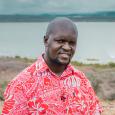The data science skills gap
As rapid technological growth continues to fuel digital transformations across the globe, there is a growing need for data skills and literacy. To keep pace with and effectively leverage the increasing volume and complexity of data being generated, data producers and users need increasingly robust data science capabilities, particularly to drive forth sustainable development.
Building data science knowledge, capacity, and skills sits at the heart of digital transformation in Africa, enabling innovation and driving evidence-based policies across the continent.
According to the World Bank, building adequate human capital is more critical in Sub-Saharan Africa than anywhere else in the world. Sub-Saharan Africa is facing a significant digital skills gap with a projected 230+ million jobs by 2030 that will require digital skills, resulting in nearly 650 million training opportunities.
Increasing access to a wide range of online data science courses to emerging African data leaders must be prioritized to prepare youth and adults for the skills of the future at low cost. In the public sector, incorporating data science in national statistical systems is a key driver in improving the delivery of effective government services and policies. The growing need for accessible data requires a shift in traditional statistical processes to embrace new technologies, such as machine learning, for statistical analysis.
The paradigm shift in the career path for statisticians across the national statistical office has also been experienced and welcomed in the execution of our mandate as Statistical Service in Ghana. The growing need for real or near-real time data among modern data users necessitates a relook at our traditional compilation procedures to include modern methods of data sourcing, processing and dissemination of statistical products.
The Data Science Fellowship
To address this need, the Data Science Fellowship Program upskilled public sector officials to use data science tools to more efficiently and effectively support evidence-based decision-making and facilitate development in sectors such as education, health, environment, and humanitarian relief.
The Global Partnership for Sustainable Development Data worked with the African Institute for Mathematical Sciences (AIMS), a pan-African network of Centres of Excellence for postgraduate training in science, technology, engineering, and mathematics, to deliver the program. Combining AIMS’s technical expertise and the Global Partnership’s country relationships, data science training was delivered to public sector officials from 14 countries.
Targeting mid-level officials, the virtual training moved from foundational to advanced data science topics across two months, led by a team of data scientists from various AIMS hubs. A project-based fellowship followed the training in four of the participating countries, where a use case was supported by a data science fellow for four months.
Explore the projects and hear from the fellows in the interactive Q&A below or read their full interviews:
The fellowship program provided a wealth of insights for the roles, challenges, and opportunities of data science for development across Africa, and beyond.
Key insights
Hybrid learning models enable both breadth and depth of data science capacity building.
The two-part hybrid nature of the program was an effective model for jump-starting sustainable data science skills development and knowledge sharing in the public sector.
Through the virtual training phase, the program reached over 80 participants from Botswana, Ethiopia, Ghana, Guinea, Madagascar, Malawi, Mali, Mauritius, Nigeria, Senegal, Sierra Leone, Somalia, Somaliland, and Togo. Participants gained wide-ranging data science skills and knowledge and practical experience with tools applicable to their respective institutional contexts.
Remote delivery is cost-effective and enables people to join training opportunities across different geographies and contexts. Maintaining learner engagement and interaction is essential for high-impact virtual delivery, especially in data science. During the training, the availability and use of open platforms like Google Collab allowed participants to write and execute arbitrary code through their browsers without needing specialized software. However, there are always trade-offs with different modes of delivery, and virtual learning requires additional preparation and resourcing around languages, connectivity, and in-between session engagement.
After two months, every participant reported an increase in data science knowledge and skills. Beyond gaining knowledge, a third of them now felt equipped to practice these skills in their institutional contexts, a critical indicator of likely behavioral change as a result of the program. Working with their institutions’ leadership, the trainees were able to go on and apply the skills learnt through identifying a key problem related to the pandemic response, recovery, and resilience for data science application.
I will apply [this training] in my work. This will allow me to better process the data. I have also acquired knowledge on the visualization of the data and on how to make better predictions and limit the errors in the dissemination of results for better decision-making. –Ndeye Fatou Mboup, ICT and Innovation Project Manager, IPAR, Senegal
After the virtual training, the fellowship stage of the program provided national statistical offices (NSOs) and ministries with an opportunity for practical, hands-on learning in a hybrid format.
Partnerships are central to closing the knowledge and skills gap in data for development.
Through partnering with academic institutions to develop shorter-term online and blended learning programs led by local data scientists, NSOs and other government institutions enhance their internal capacities to develop tailored data-driven solutions to local challenges.
The program tapped into the wide AIMS data science network across Africa to facilitate the training, as well as source the pilot fellowship cohort. Training participants benefited from engaging with local data science experts and relevant use case scenarios. For example, in Malawi, the trainees were able to receive support from a fellow who designed a quality assurance and training plan for implementation across the project’s participating districts, using his knowledge of the local context, drivers, and barriers for change.
The exposure of members of staff to data science has been a big opportunity to be at pace with what is developing continentally and globally [in terms of] data exploration and data visualization; ease of analysis; identification of errors and ability to fix them. In particular, it has enabled us to improve our statistical bulletins on child protection indicators and increased our knowledge of Python programming. –Mercy Kanyuka, Commissioner of Statistics, National Statistical Office, Malawi
Building on the Global Partnership’s existing relationships with agencies like Ghana Statistical Service, the involvement of institutional leaders for their input and approval of projects from inception helped to enhance these provisions. In turn, these engagements boosted demand for improved technical skills and use of new technologies and products. Similarly, the fellows benefited from experience with real-life situations on sustainable development-related issues that will inspire their continued growth in the sector beyond this particular program.
Looking forward
The Data Science Fellowship highlights the vast potential of emerging data scientists and statisticians to drive digital transformation across the African continent and support sustainable development. This learning and partnership approach paves the way for future opportunities for upskilling and collaboration across even more statistical institutions, data-driven organizations, and governments in Africa.
Looking ahead, similar models of education and partnership between data experts, governments, academic institutions, and others could be scaled up to bridge skills and capacity gaps in other countries and regions. Doing so will not only help countries facing a significant digital skills gap reap the benefits of global digitalization and innovation, but also strengthen statistical systems for sustainable development.

We wish to make a call for action for new partnerships to create a vibrant community of emerging African data scientists including professional public sector statisticians to address the growing capacity gaps in data science and other emerging technologies.

Through the fellowship, it is clear that there is both demand for and interest in targeted technical skills building in the public sector across the continent. Moving forward, strategic cross-sector partnerships are at the core of bridging the digital gap and mobilizing the data revolution in Africa. We’ll continue to work with our partners to make this a reality.
As the data revolution continues to grow, governments across the world must take advantage of the increasingly available (and necessary) digital tools and skills to harness unprecedented opportunities to transform society and protect the environment.






